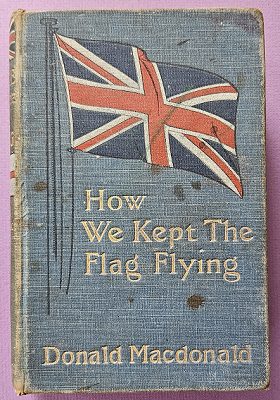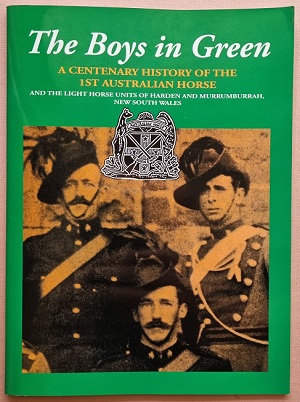Description
Title: Scapegoats of the Empire: The True Story of Breaker Morant’s Bushveldt Carbineers
Author: Witton, George
Condition: Very Good Plus – Gift inscription on the inside of the front end page.
Edition: 2nd Edition
Publication Date: 1982
ISBN: 0207146667
Cover: Hard Cover with Dust Jacket – 247 pages
Comments: A reprint of Witton’s classic tale of the court martial of three Australian officers during the Boer War.
His book, Scapegoats of the Empire was originally published in 1907 by D. W. Paterson of Melbourne, but was long unavailable. Prior to its reprint in 1982 by the Australian publishing house Angus & Robertson, it is claimed that only seven copies of the book survived in various Australian state libraries and in the possession of Witton’s family. Although unsubstantiated, it has long been claimed that the book was suppressed by the Australian government and most copies were destroyed; another explanation is that most of the copies were destroyed by an accidental fire at the publisher’s warehouse. The 1982 reprinting was inspired by the success of a film based on the book, entitled Breaker Morant.
Witton’s main assertion, as indicated by the book’s provocative title, is that he, Morant, and Handcock were made scapegoats by the British authorities in South Africa—that they were made to take the blame for widespread British war crimes against the Boers, and that the trial and executions were carried out by the British for political reasons, partly to cover up a controversial and secret “no prisoners” policy promulgated by Lord Kitchener, and partly to appease the Boer government over the killing of Boer prisoners, in order to facilitate a peace treaty; the Treaty of Vereeniging was signed on 31 May 1902.
Witton also claims that many of the accusations about them, which led to their arrest and trial, were made by disaffected members of their regiment whose rebellious behaviour had been suppressed by Morant and Handcock.
An embittered Witton did not rush to enlist in World War I. After former and future Prime Minister Andrew Fisher pledged during the 1914 general election that Australia would defend Britain “to the last man and last shilling,” Witton intimated that he would be that last man. He lived in Gippsland, Victoria and in Queensland where he was a dairy farmer. He married twice, but did not have any children. He had a heart attack while cranking his car engine, and died in a hospital on 14 August 1942. He was buried in Brisbane’s Lutwyche Cemetery which, coincidentally, is located on the corner of Lutwyche and Kitchener Roads.



